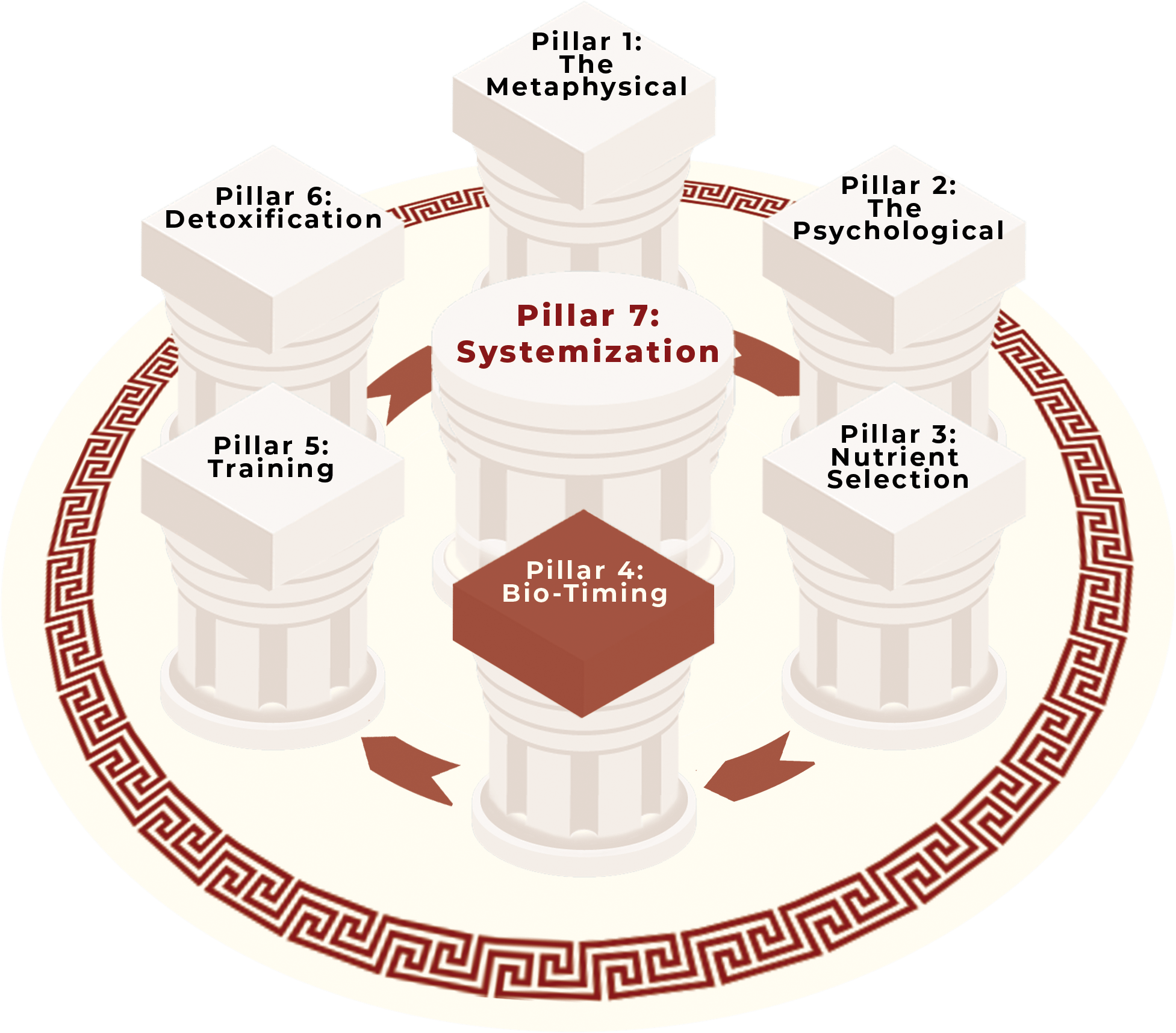
Pillar 4: Bio Timing
The Master Clock
Believe it or not, your body has several clocks that determine times to perform specific actions.
Just as having routines in daily life assist in staying organized and efficient, so too does the body's inner clocks aid in biological processes. Of these clocks, there exists a master clock; a clock of clocks, so to speak. Adherence to this master clock is like blazing through every green light while driving to work: actions happen smooth and effortlessly. Ignorance of this clock is like being stopped at every red light. Not only this, but adherence to your inner schedule has huge implications for energy, focus, weight management, and muscle acquisition.
Welcome to the world of bio-timing.

The Rhythm Anchor
Perhaps you may be wondering how the body determines its starting time, despite people living in vastly different parts of the world. Long story short, sleep plays a vital role in synchronizing biological function with the time of day, and is therefore a rhythm anchor. Before a ship decides to drop its anchor, the crewmen carefully determine an ideal location and context for doing so. Similarly, sleep schedules must take into account:
Sun/light exposure.
Periods of eating (or not eating).
Social activities, including work schedules.
All in all, if you are interested in obtaining effortless health, you must learn to sleep well.

The Effects of Light on Bio-Rhythms
Undoubtedly, light exposure has the largest effect on your daily rhythm (also known as the circadian rhythm). Failure to control and manipulate light, whether that is sunlight or light from a backlit screen, will result in a misaligned schedule. The difficulty is that our society has artificial light at the nexus of activity: watching T.V., working indoors, and even reading with a light are prime examples of this. How then, do we still enjoy these activities while respecting our innate biology? The answer is that we must reshape our environments with this knowledge in mind.

The Effects of Food on Bio-Rhythms
Additionally, food consumption has large implications for your sleep, and therefore your daily rhythms. Most people consume food throughout the day and often late into the night. Did you know this eating schedule not only short circuits sleep, but is a fast-track way to store body fat? It is a constant signal to the body that food is abundant, and that it ought to store this energy for future use. Shifting from mindless eating to mindful eating is the key. And if you become aware of your food, will your enjoyment not also increase? Certainly it will. Quality over quantity.


